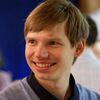
Lukas Hardt
- Course: Ecological Economics MSc
- Year of graduation: 2017
- Nationality: German
What have you been doing since finishing your studies? What are you doing in terms of your career?
After finishing my studies I took a 3-months break to go travelling before starting a PhD. I am currently still studying for my PhD at the University of Leeds in my 3rd year.
What are you doing now that you have graduated?
I am studying for my PhD at the Sustainability Research Institute at the University of Leeds. My PhD project is part of the UK Energy Research Centre (UKERC) and explores questions around the energy-economy relationship. Within this broad field I have the freedom to pursue those questions that I am interested in. Questions that I am exploring include: How has structural change in the UK economy impacted energy consumption? What kind of structural changes do we need to significantly reduce energy consumption while maintaining employment and financial stability?
My research work involves a range of activities, including reading, quantitative economic modelling and paper writing. The work is largely self-directed, although I get regular support from my supervisors.
What experiences at Leeds do you think have particularly will help with your future career?
A good experience in my MSc degree at Leeds were the classes in research methods. These provided me with some basic knowledge on a wide range of research techniques, which is still proving very useful in my PhD research. I also attended the bi-annual conference of the European Society for Ecological Economics, for which I received a conference bursary from the school. During the conference I met several other researchers who are interested in similar topics. I am still in regular contact with many of them and these exchanges have been very valuable for shaping my PhD research.
Looking back, why did you choose to study your particular course and why did you choose the University of Leeds?
After completing a BSc in Sustainable Development I came to the conclusion that it is our current economic system that is causing many of the environmental problems we are facing, such as climate breakdown. Therefore I decided to pursue an MSc degree in Ecological Economics to learn how we can transform our economic system to make it more sustainable and socially just. I chose to come to the University of Leeds because it is one of the very few places in Europe that offers a dedicated degree in Ecological Economics and it hosts one of biggest and most vibrant research groups in the field.
What was the best aspect of the course and why?
One of my favourite aspects of the course was the close collaboration with the economics department at Leeds University Business School (the MSc Ecological Economics is hosted at the School of Earth and Environment). This collaboration allowed me to complement my course in Ecological Economics with a range of insightful modules on other economic topics and perspectives, for example the global financial system. Combining Ecological Economics with insights from other schools of economic thought did not only enrich my study experience, but this area also constitutes one of the cutting edge research areas in the field and has strongly shaped the ideas for my PhD research.
What other activities outside of your studies were you involved in?
During my studies I got involved in the Leeds University Union Hiking Club (LUUHC). It is one of the best-run student societies I have every encountered and they offer fantastic day and weekend trips to lots of different places around the UK. It’s one of the easiest (and cheapest) ways to get out into the hills for a break from studying; and you get to know friendly new people along the way.
What would you say to students thinking about studying the same course at Leeds or thinking about the same career?
I would highly recommend studying for a MSc in Ecological Economics at the University of Leeds. There are very few places that offer a similar breadth of research and experience in the field. Studying for the MSc full time can be quite intense and it really helped me to take time out to go hiking and clear my head.
Pursuing a PhD as a next step in your career is a great option if you enjoy doing research and if you are thinking about a further career in academia. Studying for a PhD gives you a lot of freedom to explore your own ideas. However, it requires an ability to motivate yourself to work without anybody telling you what to do every day.

